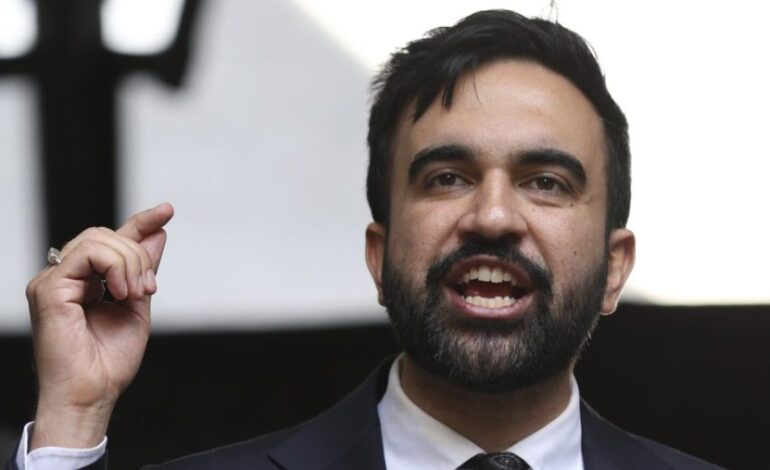Republicans Caution Against Elevating Mamdani as Democrat Face

The political landscape in the United States is shifting as Republicans express caution over the potential for Khaled Mamdani to become the face of the Democratic Party. His elevation could inadvertently awaken millions of Americans grappling with economic challenges, prompting them to scrutinize what they perceive as a “free is for me” mentality among certain Democratic policies. This sentiment comes ahead of the crucial 2024 elections where economic issues are expected to dominate voter concerns.
Republicans are urging their party to be vigilant regarding Mamdani’s rising prominence. Born in the United States but raised in the United Kingdom, Mamdani has emerged as a significant figure within the Democratic Party, especially among progressives. His calls for sweeping social reforms resonate with many, but critics argue that framing him as the party’s standard-bearer could backfire. They contend that his views may alienate moderate voters who are wary of radical changes to the economic system.
Critics point to the recent election cycle, where figures like Rashida Tlaib and Shahid Buttar faced backlash for their staunchly progressive platforms. The Republican Party believes that the more the Democratic Party aligns itself with individuals like Mamdani, the more it risks losing the support of centrist voters. This dynamic is particularly concerning as many Americans continue to feel the weight of inflation and economic instability.
Economic Concerns Drive Political Strategy
The U.S. economy remains fragile, with inflation rates hovering around 6.4% as of March 2024. This economic backdrop plays a pivotal role in shaping voter sentiment. Republicans argue that the Democratic Party’s focus on expansive social programs, often championed by figures like Mamdani, could exacerbate these economic challenges. They fear that voters may perceive these initiatives as unrealistic or overly generous, particularly in a time of financial strain.
Furthermore, the potential for Mamdani to be portrayed as the face of the Democrats could galvanize Republican voters. Political strategists suggest that this could lead to increased turnout among conservatives who view Mamdani’s progressive policies as a direct threat to their economic well-being. The Republican Party appears poised to leverage this narrative in upcoming campaigns, framing themselves as the party of fiscal responsibility against a backdrop of perceived Democratic excess.
Republicans also emphasize the importance of addressing the needs of struggling Americans without resorting to what they consider populist rhetoric. They argue that focusing on economic growth and job creation is essential for winning over undecided voters. The party’s strategy may hinge on contrasting their approach with that of the Democrats, particularly if Mamdani continues to gain traction within the party.
The Road Ahead for Both Parties
As the 2024 elections approach, both parties must navigate a complex political terrain. For the Democratic Party, deciding how to position figures like Mamdani will be crucial. While his vision for a more equitable society resonates with a segment of the electorate, it remains to be seen whether this appeal can translate into broader support.
For Republicans, the challenge lies in effectively communicating their economic agenda while countering the progressive narratives that could energize Democratic voters. The stakes are high, as the outcome of the upcoming elections could significantly shape U.S. policy direction for years to come.
In this evolving political landscape, the Republican caution regarding Mamdani reflects a broader strategy to reclaim ground in a competitive electoral environment. As both parties refine their approaches, the impact of economic realities on voter preferences will be a decisive factor in the months leading up to the elections.






